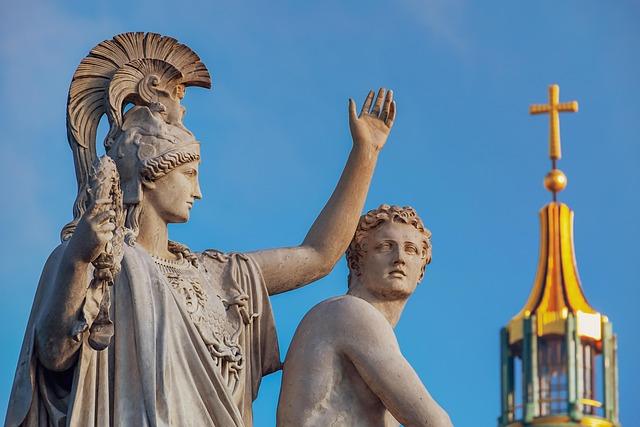The Greeks of Alexandria, Egypt: A Tapestry of History and Culture
Alexandria, the fabled city founded by Alexander the Great in 331 BCE, has long been a crossroads of civilizations and a beacon of cultural exchange. Among its diverse populace, the Greek community has played a pivotal role in shaping the city’s identity and legacy over the centuries. From the heights of Hellenistic intellectualism during the era of the Great Library to the poignant stories of resilience through centuries of change, the Greeks of Alexandria represent a rich tapestry of history. As we delve into their enduring presence, we explore the evolution of their community, their contributions to art, philosophy, and commerce, and the challenges they face in the modern era. This article aims to illuminate the remarkable story of the Greeks in Alexandria, a testament to the city’s vibrant multicultural heritage and its ongoing relevance in today’s global landscape.
The Cultural Legacy of the Greeks in Alexandria
The Greeks of Alexandria have left an indelible mark on the city, transforming it into a thriving center of culture and philosophy during their time. Their influence can be observed through various avenues, notably in literature, art, and science. Renowned figures such as Eratosthenes, who calculated the circumference of the Earth, and Euclid, the father of geometry, established Alexandria as a hub of intellectual pursuit. The famous Library of Alexandria, which housed countless scrolls and texts, stands as a testament to the scholarly ambitions and literary achievements of the Greek community, attracting luminaries from across the Mediterranean.
Furthermore, the Greeks introduced a distinct architectural style that blended Hellenistic elements with local aesthetics, creating iconic structures that still captivate visitors today. Among these are the Pharos Lighthouse, one of the Seven Wonders of the Ancient World, and numerous temples dedicated to Greek deities, which contributed to the multicultural tapestry of Alexandria. Greek festivals, theater performances, and philosophical discussions enriched the city’s social fabric, nurturing a vibrant civic life. The legacy of this intellectual and cultural heritage can still be felt in the traditions and practices of modern Alexandria, where the echoes of Greek influence continue to resonate.
Preserving Greek Heritage: Challenges and Opportunities
The Greek community in Alexandria, a once-thriving hub of Hellenic culture, faces both challenges and opportunities in its quest to preserve its heritage. Many cultural landmarks and traditional practices that define Greek identity in the city are at risk due to urbanization and demographic shifts. The reduction in the Greek population has led to the closure of historical sites, while younger generations often engage less with their cultural roots. Nonetheless, there is an increasing awareness among community members about the importance of safeguarding their unique traditions, such as the celebration of Orthodox holidays and the preservation of the Greek language.
To combat these challenges, community leaders are actively seeking innovative solutions that not only celebrate but also actively promote Greek heritage. Initiatives include:
- Creation of cultural festivals showcasing Greek music, dance, and cuisine
- Partnerships with local schools to promote Greek language education
- Restoration efforts of historical buildings and churches
Additionally, the establishment of community workshops aimed at teaching traditional crafts can help bridge the gap between generations. These endeavors not only foster a sense of identity but also encourage the broader public to appreciate the rich tapestry of Greek culture embedded within Alexandria’s history.
Modern Greek Community Initiatives in Alexandria
The Greek community in Alexandria has long been known for its resilience and commitment to cultural preservation. Recent initiatives highlight the unwavering spirit of this community, showcasing a dedication to both heritage and innovation. Community centers have emerged as hubs for engagement, offering language courses, cooking classes, and cultural workshops that cater to new generations looking to reconnect with their roots. Notable among these is the Cultural Association of Hellenic Heritage, which organizes annual festivals celebrating Greek traditions, attracting both locals and tourists.
Moreover, in an effort to support local businesses and strengthen community ties, several Greek entrepreneurs have launched cooperative ventures. These include farmers’ markets featuring traditional Greek produce, artisan workshops that promote handmade crafts, and café spaces where patrons can enjoy authentic Greek coffee while enjoying music and art exhibitions. Such initiatives not only promote commerce but also foster a sense of belonging and unity within the community. Below is a table highlighting some key community initiatives:
| Initiative | Description | Impact |
|---|---|---|
| Cultural Festivals | Annual events celebrating Greek traditions. | Strengthened cultural pride & tourism boost. |
| Language Classes | Courses for all ages to learn Greek. | Increased linguistic fluency & connection to heritage. |
| Cooperative Markets | Showcasing local produce and products. | Support for local businesses & community building. |
Closing Remarks
In conclusion, the Greeks of Alexandria have left an indelible mark on the cultural and historical landscape of Egypt. Their contributions to commerce, philosophy, and the arts have woven a rich tapestry that reflects a unique blend of Hellenistic and Egyptian influences. As the city continues to evolve, the legacy of its Greek community remains a vital part of Alexandria’s identity. Understanding this historical relationship not only enriches our appreciation of Alexandria’s past but also highlights the importance of multicultural heritage in shaping modern societies. As we move forward, the ongoing dialogue about the Greeks in Alexandria serves as a reminder of the enduring connections between cultures, underscoring the need for continued exploration and appreciation of our shared histories. For further insights and a deeper understanding of this fascinating topic, visit GreekReporter.com.
